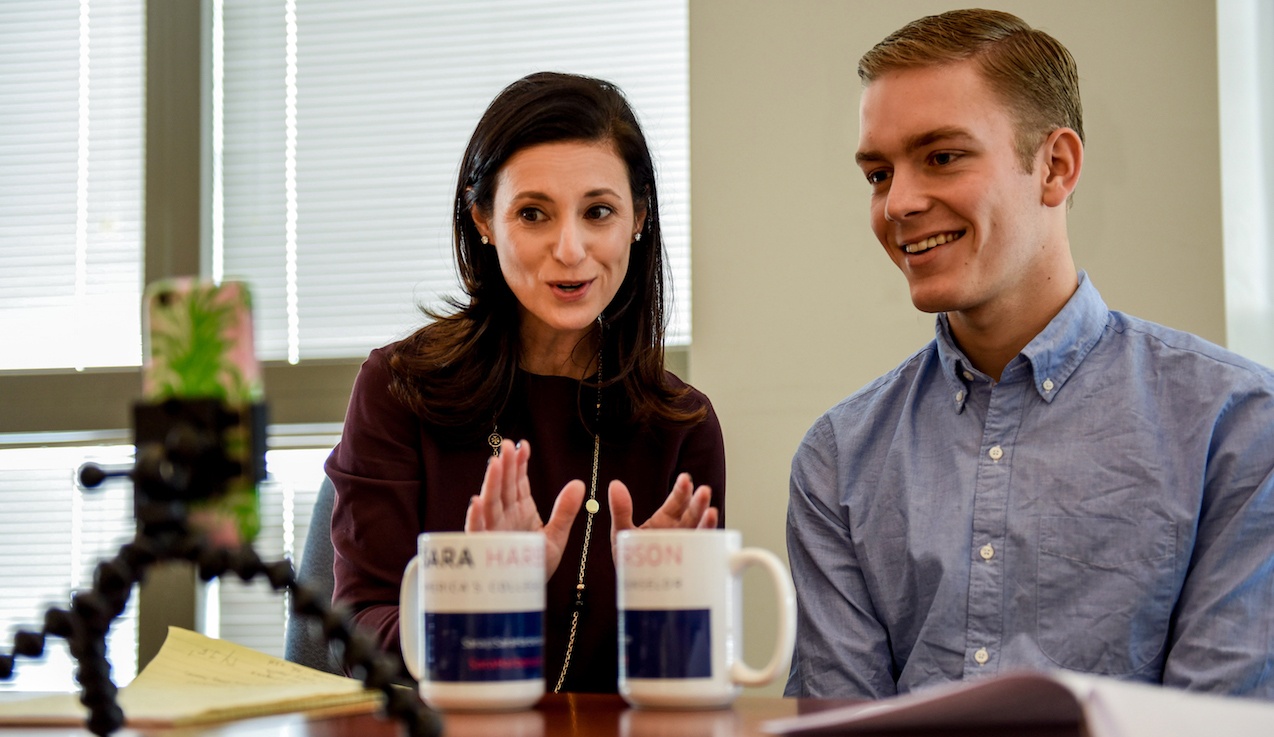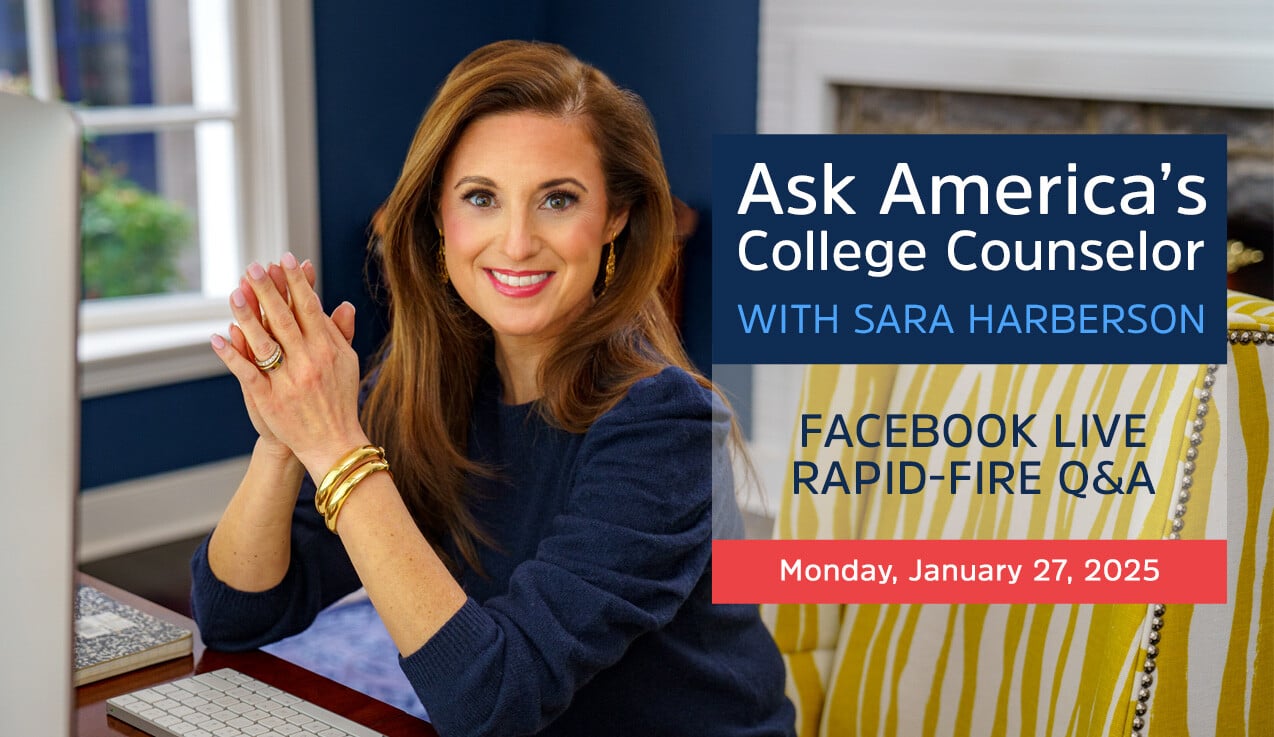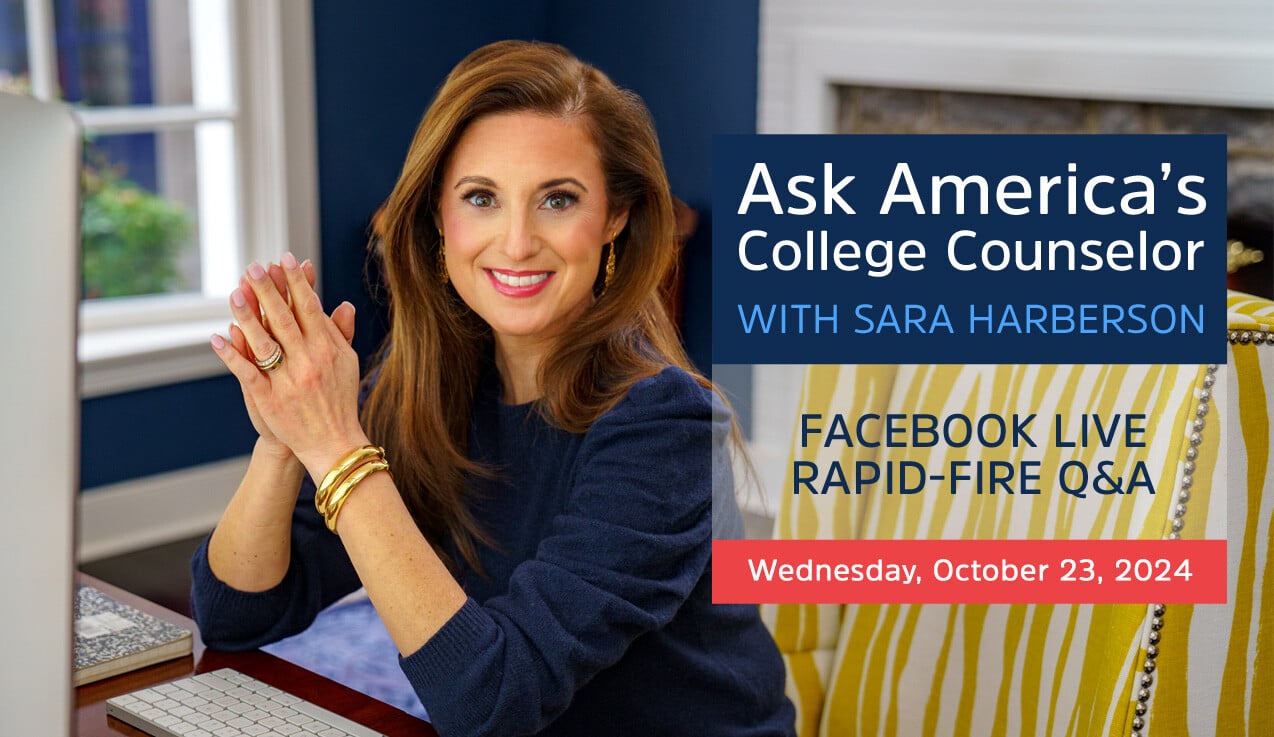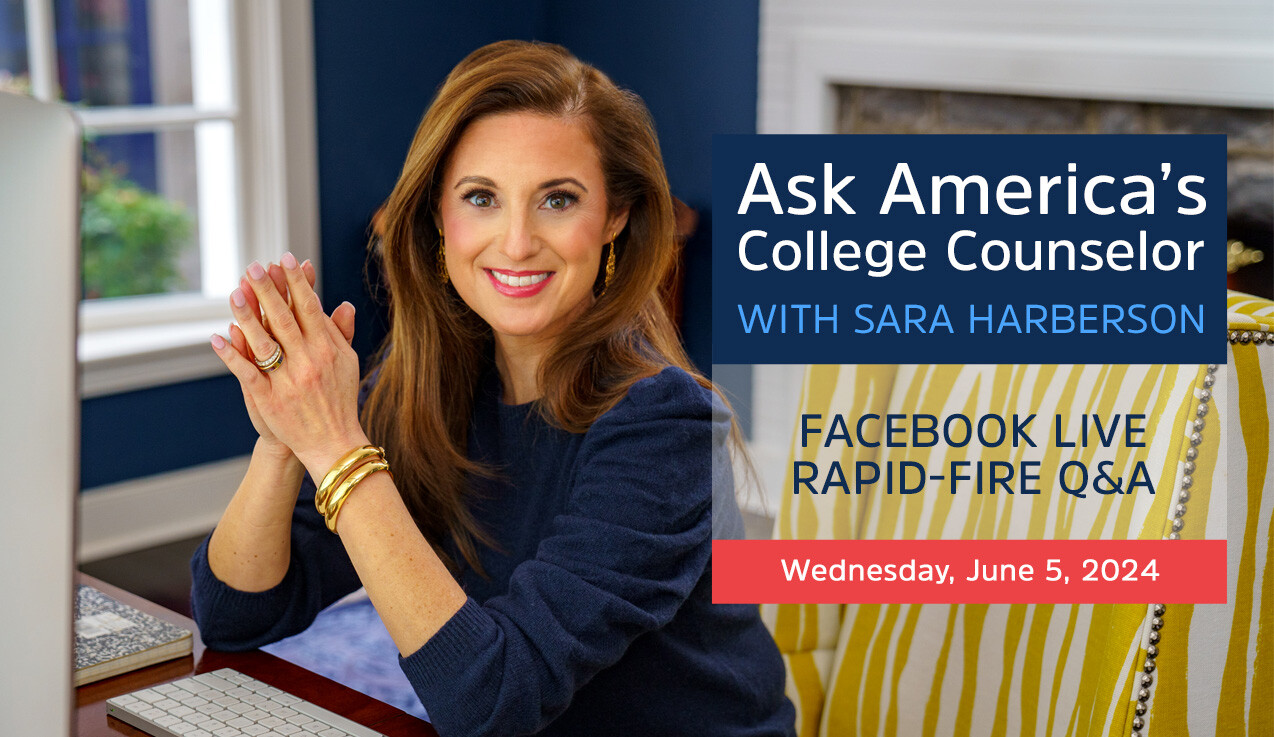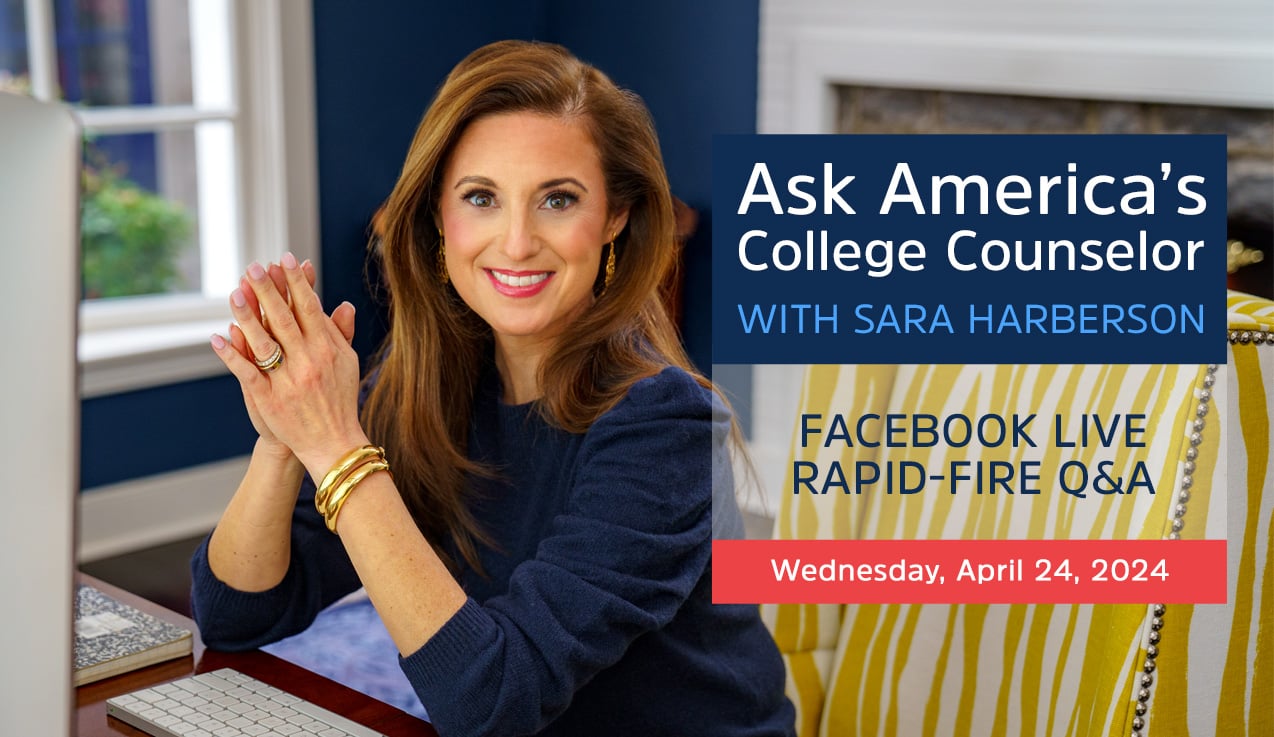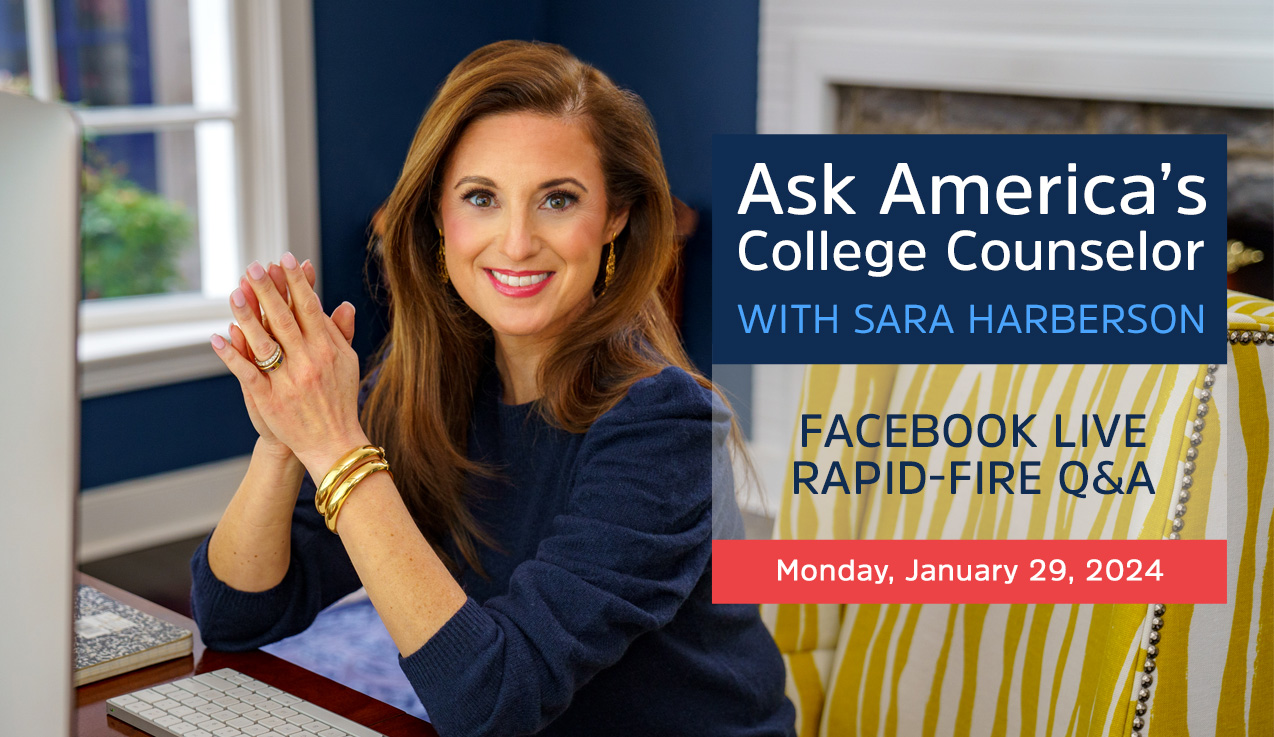In case you missed it, here's a recap of my recent Facebook LIVE Q&A on how high school juniors can prepare for the college admissions process right now—plus bonus questions I didn't get to answer live!
Once again I invited my guest blogger, John Fulton, to join me. He's a high school student going through the college admissions process who also writes a blog series, “The Road to College Admissions” featured here and on AdmissionsRevolution.com (be sure to check back for his latest post!)
HERE ARE SOME OF THE QUESTIONS YOU'LL SEE ME ANSWER:
- What is the most important piece of the application?
- When should students apply for scholarships? Where do they find them? What is the financial aid timeline?
- How does a student know what type of college is right for them?
- Are PSATs factored into the admissions or the scholarship process? How many times should you take these tests? When should you start?
- Does every student need to take Subject Tests? And, which ones should you take?
- Is it beneficial to apply Early Decision or Early Action? Is there a limit on the number of early schools you can apply to?
- Do colleges know where else you applied?
- Could my child start filling out the Common App now? Can essays be written even before the 2017-2018 prompts are made available?
- What should students do during the summer after junior year?
- What is the most important thing a junior should do now?
- Plus many more!
What juniors should do right now to prep for #College Admissions with Sara Harberson
Posted by Sara Harberson on sábado, 7 de enero de 2017
BONUS Q&A- BIG QUESTIONS THAT DIDN'T MAKE THE VIDEO
1. How do the scores from the PSAT relate to the scores of the SAT or ACT?
The PSAT is a practice test offered through the College Board, the same company that oversees the SAT. Students who take the PSAT should keep in mind that the highest score they can get on each section is a 760 while the highest score on each section of the SAT is an 800. Students who take the PSAT in October of junior year will usually see their scores improve on the SATs when they take it in the winter or early spring of junior year. The PSAT results can give the student a sense of what they need to work on when they prepare to take the SAT. A combination of time, formal test preparation, and taking practice tests will yield the best results. Unless the student is an exceptionally strong test-taker, they should wait to take the SATs until AFTER they take the PSATs in junior year.
PSATs don't predict specific results on the ACT as these are completely different tests and administered by different companies. The best way to determine how well a student would do on the ACT is to take a diagnostic (or practice) ACT on their own.
Ideally, a student should take the PSATs and a diagnostic ACT to see how they perform on each test before they register to take a test. If they perform better and find the PSAT to be a better fit, they should move forward with the SAT. If they perform better and feel more comfortable when they take the diagnostic ACT, they should stick with the ACT.
And, as I mentioned in the FB Live Q&A, students should take the SAT OR ACT three times at the most!
2. Is it okay to ask for a recommendation letter from a sophomore year teacher if you have a strong relationship with them?
Yes, students can ask either 10th or 11th grade academic teachers to write letters of recommendation. Academic teachers are the math, science, English, foreign language, and history teachers at a student's high school.
There was a similar question from a mom of an Eagle Scout. She asked if her son could use one of the five letters of recommendation he needed to get for his Eagle Scout process. I wouldn't recommend this for a few reasons. First, you want the most up-to-date letter of recommendation for your college applications. Most teachers write their letters over the summer or the fall right before a student applies. If this student ends up using letters written a year before he applies, it won't include recent achievements or insight. Second, colleges prefer to hear from academic teachers from the student's high school. This ensures that the student's academic abilities will be included in the letter. Letters should include character traits and personal stories, but the academic component needs to be the thrust of the letter.
And, keep in mind, that sending in extra letters of recommendation may be acceptable at certain colleges, but be very judicious with this! Most selective colleges give little weight to extra letters of recommendation. Sometimes, they get annoyed when students send in extra letters. So, students should focus on building relationships with academic teachers at their school if they want the strongest letters of recommendation for college.
3. Is it a bad idea to plan college visits during the summer months?
It's not a bad idea to wait until the summer to do college visits. Honestly, this is when most families visit colleges. With demanding courses and limited days off, most students don't have a lot of time to visit colleges during the school year. Just keep in mind that summer on a college campus is not as bustling as it is when school is in session. However, most colleges still have students working on campus during the summer. Many colleges offer summer courses too which can add some activity to campus life.


